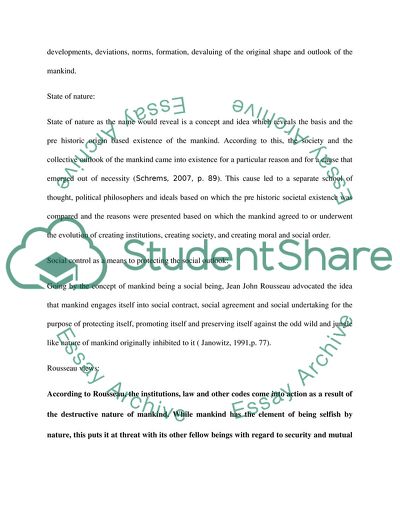Cite this document
(The Role of State According to Hobbes and Locke and Rousseau's Social Essay Example | Topics and Well Written Essays - 1500 words, n.d.)
The Role of State According to Hobbes and Locke and Rousseau's Social Essay Example | Topics and Well Written Essays - 1500 words. https://studentshare.org/social-science/1862083-discuss-the-role-of-state-according-to-hobbes-locke-and-rousseaus-social-contract-theory
The Role of State According to Hobbes and Locke and Rousseau's Social Essay Example | Topics and Well Written Essays - 1500 words. https://studentshare.org/social-science/1862083-discuss-the-role-of-state-according-to-hobbes-locke-and-rousseaus-social-contract-theory
(The Role of State According to Hobbes and Locke and Rousseau'S Social Essay Example | Topics and Well Written Essays - 1500 Words)
The Role of State According to Hobbes and Locke and Rousseau'S Social Essay Example | Topics and Well Written Essays - 1500 Words. https://studentshare.org/social-science/1862083-discuss-the-role-of-state-according-to-hobbes-locke-and-rousseaus-social-contract-theory.
The Role of State According to Hobbes and Locke and Rousseau'S Social Essay Example | Topics and Well Written Essays - 1500 Words. https://studentshare.org/social-science/1862083-discuss-the-role-of-state-according-to-hobbes-locke-and-rousseaus-social-contract-theory.
“The Role of State According to Hobbes and Locke and Rousseau'S Social Essay Example | Topics and Well Written Essays - 1500 Words”. https://studentshare.org/social-science/1862083-discuss-the-role-of-state-according-to-hobbes-locke-and-rousseaus-social-contract-theory.


